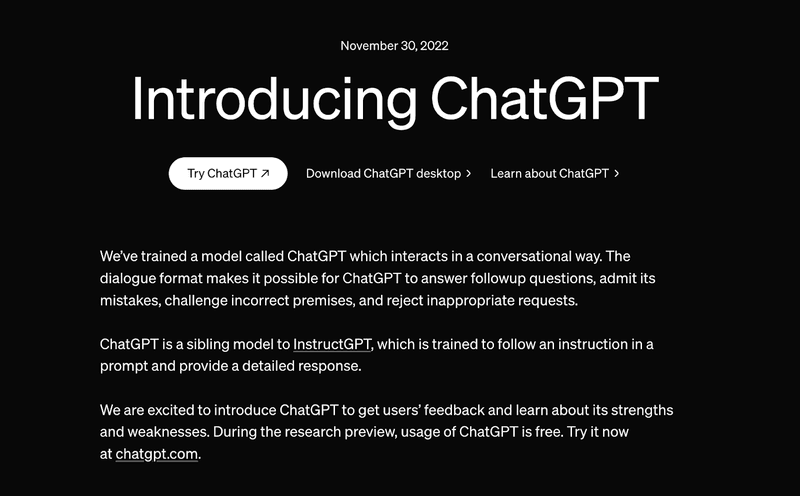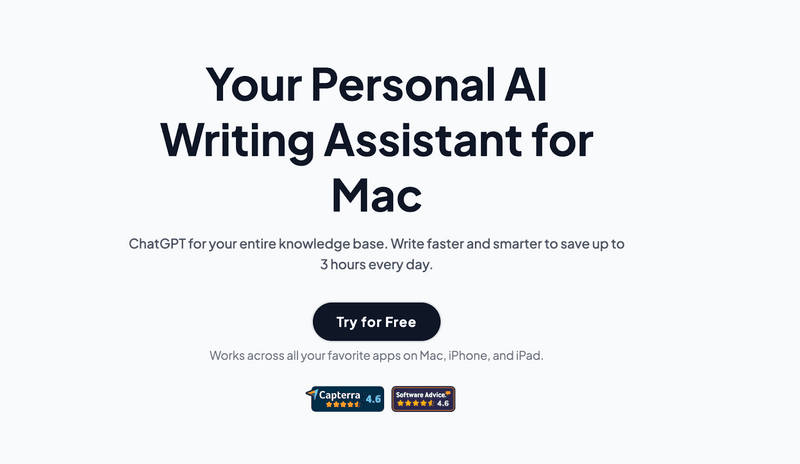How to Use AI to Summarize Research Papers (2026): Step by Step Guide
We have all been there, trying to go through research papers before an examination or assignment. But we also know how hard it is. It is just like trying to drink from a fire hose – there's just too much to take in.
We know that we need to read them all, but who has the time?
This problem isn't just annoying; it's holding us back from doing our best work. But here's some good news: thanks to the AI revolution, there are AI tools that can help us in this dire situation.
There are AI tools that can help us quickly identify what's important in each paper and also explain each topic in a research paper. You can also ask follow-up questions.
If you want to check the originality of your summaries or verify AI-generated content, tools like https://essayhub.com/ai-detector can be very helpful.
So let's see what this tool is all about.
Why Should You Use AI to Summarise Research Papers?

Let's face it, reading through piles of research papers can be a real headache. That's where AI comes in to save the day! It's like having a super-smart assistant who can quickly read and summarize all those papers for you. Let's see why it's such a big deal.
1. Saves You Tons of Time
Using AI, you can zip through articles faster than you can say "coffee break," giving you the main points in no time. This means you can focus on the really important stuff instead of drowning in details.
2. Helps You Understand and Remember Better
Keeping up with new research can feel like trying to drink from a fire hose. AI makes it easier by giving you bite-sized summaries. This way, you can stay on top of what's new in your field without your brain turning to mush.
3. Makes Finding Info a Breeze
AI is like Google on steroids for research. It can dig through tons of papers and pull out exactly what you need, even if you're not sure how to ask for it.
4. Gives You Customized Summaries
Everyone's research needs are different, and AI gets that. It can give summaries that fit exactly what you're looking for, cutting out the fluff and giving you the good stuff.
5. Speaks Your Language
Research papers can sometimes feel like they're written in alien. AI can translate that alien speak into something you can actually understand, no matter what field you're in.
By summarizing research papers using AI, you're not just saving time - you're becoming a more efficient and effective researcher. It's a skill that pays off in many ways, helping you to get the work done faster and more effectively.
Step-by-Step Guide: Using AI to Summarize Research Papers
To easily summarise your research papers, we will explain two different techniques. One is using the well-known tool ChatGPT, and the other is using the productivity partner Elephas. Both are the best when it comes to summarizing research papers, but Elephas has a slight edge over ChatGPT. Let’s look into both techniques.
ChatGPT

Using ChatGPT to Summarize Research Papers:
Go to the ChatGPT website or open the app on your device.
Sign in to your account or create one if you don't have it.
If you have GPT-4o access, switch to that model for better results.
Upload your research paper document.
Ask ChatGPT to summarize the paper for you
While ChatGPT can be helpful, it has some drawbacks:
The free plan has limits on how much you can use it.
You need to pay for a subscription to get more searches and better features.
It might not understand complex scientific language in some papers.
You can't save your documents for later use within ChatGPT.
Elephas

Using Elephas to Summarize Research Papers:
Download and install the Elephas app on your Mac.
Open the app and go to the Super Brain feature.
Upload your research papers. You can add files from your computer or even from cloud storage.
Ask Elephas to summarize the papers or ask specific questions about them.
Elephas has several advantages over ChatGPT:
It's designed to boost productivity, with lots of helpful features for researchers.
You can upload and save various file types (documents, images, PDFs) for later use.
If you don't understand something, you can ask Elephas to explain it better.
It works offline, so you don't need an internet connection all the time.
You can choose from different AI models like Gemini, Claude, OpenAI, or Grok, based on what you like.
Elephas has a web search feature, so you can look things up without switching apps.
It offers other writing tools that can help with research papers and general productivity.
While both tools can help summarize research papers, Elephas is more suited for serious research work. It offers more features to help you understand and work with your papers, and it's designed to fit into your workflow on your Mac. Plus, you can work offline and choose your preferred AI LLM model gives you more control over how you use the tool.
Tips to Get the Most Accurate AI Summaries

Now we know what the best techniques are to summarize research papers. Here are some tips to help you get better results from these tools.
Choose the right tool: Pick a tool that fits your needs. Elephas is great for Mac users who want a full-featured assistant. It lets you upload different file types and use various AI models. This flexibility can help you get better summaries.
Use high-quality inputs: Give the AI clear, well-formatted papers. If your document is messy or hard to read, the AI might struggle to summarize it well.
Break it down: For long papers, try summarizing section by section. This can help the AI focus and give you more detailed summaries.
Ask specific questions: Instead of just saying "Summarize this," ask about key points, methods, or findings. This can help you get more targeted and useful summaries.
Use the right AI model: If you're using Elephas, try different AI models to see which one works best for your papers. Some models might be better at understanding certain types of research.
Iterate and refine: If the first summary isn't great, ask for clarification or rephrase your request. Sometimes it takes a few tries to get the best results.
In case you choose Elephas, most of the heavy lifting is already done as it is designed to fit into every profession workflow, especially for researchers, so it already has the necessary techniques to give you the best results.
AI Summarization vs Manual Summarization

When it comes to summarizing research papers, we have two main options: doing it ourselves (manual summarization) or using AI tools. Both have their good points and not-so-good points. It's like choosing between cooking a meal yourself or using a microwave - each has its place.
Let's look at manual summarization first:
Benefits:
You really understand the paper deeply
You can spot subtle ideas the authors hint at
It improves your own thinking and writing skills
You can focus on the parts that matter most to you
Downsides:
It takes a lot of time
You might miss things if you're tired
It's hard to do many papers at once
Your summaries might be different each time
Now, let's check out AI summarization:
Benefits:
It's super fast - can do many papers quickly
Always gives consistent results
Can handle different languages easily
It doesn’t get tired or bored
Downsides:
Might miss emotional context
Can make mistakes with very complex topics
Some AI tools are not free to use
When should you use the Manual Summarization Process?
Use manual summarization when you're dealing with a few really important papers, or when you need to deeply understand a topic. It's great for your own research or when preparing for a big exam.
When should you use the AI Summarization Process?
AI summarization shines when you have tons of papers to go through, like for a big literature review. It's also handy when you just need a quick overview of many papers to find the ones you want to read more closely.
So, what's the best approach?
Actually, using both together often works best.
Here's why:
Start with AI to quickly summarize a bunch of papers. This gives you a bird's-eye view of the field and helps you pick out the most important ones.
Then, for those key papers, do your own manual summary. This way, you get the speed of AI for the big picture, and the deep understanding from manual work for the crucial bits.
This combo approach saves you time and energy on the less important stuff while making sure you really grasp the essential papers.
Conclusion
Deciding whether to use AI to summarize research papers really comes down to what works best for you. If you’re short on time and need to get through a lot of papers quickly, AI tools like Elephas and ChatGPT can make things easier. They handle the heavy lifting so you can focus on what’s important.
But if you're delving deep into a few key papers and want to catch all the details, doing it yourself might be the way to go. Our advice is to have a mix of both is the sweet spot—let AI give you the big picture, then dive in with manual summaries where it really counts.
FAQs
1. Can AI summarize a research paper?
Yes, AI can summarize research papers efficiently by extracting key points, methods, and findings. Tools like ChatGPT and Elephas offer quick, accurate summaries, making it easier for researchers to understand complex content without reading the entire paper.
2. Can ChatGPT summarize a research paper?
Yes, ChatGPT can summarize research papers by analyzing the text and providing concise overviews. However, it may struggle with complex scientific language, and certain features, like saving documents, require a subscription for better functionality.
3. Which AI is best for summarizing articles?
Elephas is the best AI for summarizing articles, especially for Mac users. It offers offline functionality, multiple AI models, and advanced features, making it a comprehensive productivity tool. ChatGPT is also effective but less feature-rich compared to Elephas.
Comments
Your comment has been submitted